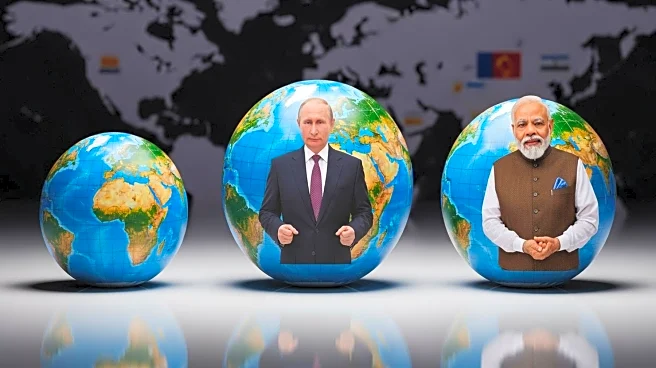What's Happening?
At a summit in Tianjin, China, leaders Xi Jinping, Vladimir Putin, and Narendra Modi showcased unity among the largest powers not aligned with the West. The meeting highlighted the camaraderie between China, Russia, and India, with Modi and Putin greeting Xi warmly, signaling a close bond. This display was intended to convey an alternative world order challenging the United States. Modi's participation underscored India's strategic relationships with China and Russia, despite ongoing border disputes with China and tensions with the Trump administration over tariffs. Analysts suggest the summit's optics are crucial, indicating that countries may seek alternatives to U.S. policies.
Why It's Important?
The summit's display of unity among China, Russia, and India is significant in the context of global geopolitics, as these nations represent a counterbalance to Western influence. The meeting underscores the potential for these countries to collaborate on issues that challenge U.S. policies, particularly in light of trade tensions and geopolitical disputes. For India, maintaining strong ties with China and Russia is vital, especially as it navigates its relationship with the U.S. under President Trump's administration. This alignment could impact global diplomatic strategies and economic partnerships, influencing international relations and trade dynamics.
What's Next?
The summit may lead to further diplomatic engagements and collaborations among China, Russia, and India, potentially affecting global trade and political alliances. As these countries explore alternatives to U.S. policies, there could be shifts in economic and strategic partnerships, impacting international relations. The White House may need to reassess its approach to foreign policy, considering the implications of this emerging alliance. Future summits and meetings could further solidify this partnership, influencing global power dynamics and economic strategies.









